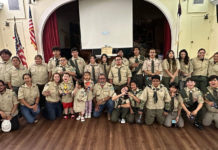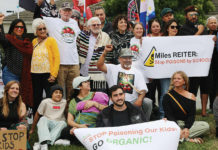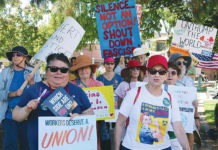
SANTA CRUZ COUNTY—With a Sept. 30 deadline to complete the nationwide 2020 Census, the federal agency has its hands full making sure every resident is counted.
But that can be difficult when residents have been evacuated due to an emergency such as the CZU August Lightning Complex Fire, which at its peak forced the evacuation of about 77,000 people.
When that happens—or when people are living in shelters due to homelessness—census takers are still able to find people by reaching out to the places, both indoor and outdoor, where they live, says Josh Green, a spokesman for the U.S. Census Bureau.
So-called Service-Based Enumeration provides an opportunity for people without conventional housing and people who may be experiencing homelessness to be counted in the census.
Through this process, people who are not included in counts of traditional household-type living arrangements or group quarters are counted where they stay or receive services or at predetermined outdoor locations.
This includes emergency and transitional shelters, and those that provide temporary refuge during extreme weather. It also includes soup kitchens and mobile food van stops that provide meals at regularly scheduled stops and that primarily serve people who may be experiencing homelessness.
Enumerators also perform counts in outdoor locations where homeless people live.
That process began in February, when the Census Bureau reached out to facility administrators for information about their facilities to assist with the enumeration process.
In Service-Based Enumeration, enumerators conduct in-person interviews with each person who is served or staying at a given service-based location. Each interview takes approximately 10 minutes.
Some shelters choose paper response data collection as their enumeration method.
As the Census Bureau winds its activities down, enumerators are working at least 25 hours per week finishing up the count, Green said.
“We are thankful for the hard work of all of our census takers whose time and flexible schedules have helped us in getting a complete and accurate count of our region thus far,” he said.
At the same time, census takers are not forced to work in unsafe conditions such as smoky air caused by wildfires. If a census taker feels work conditions in a particular area are not safe, they are reassigned to work in an area that is safe, Green said.











